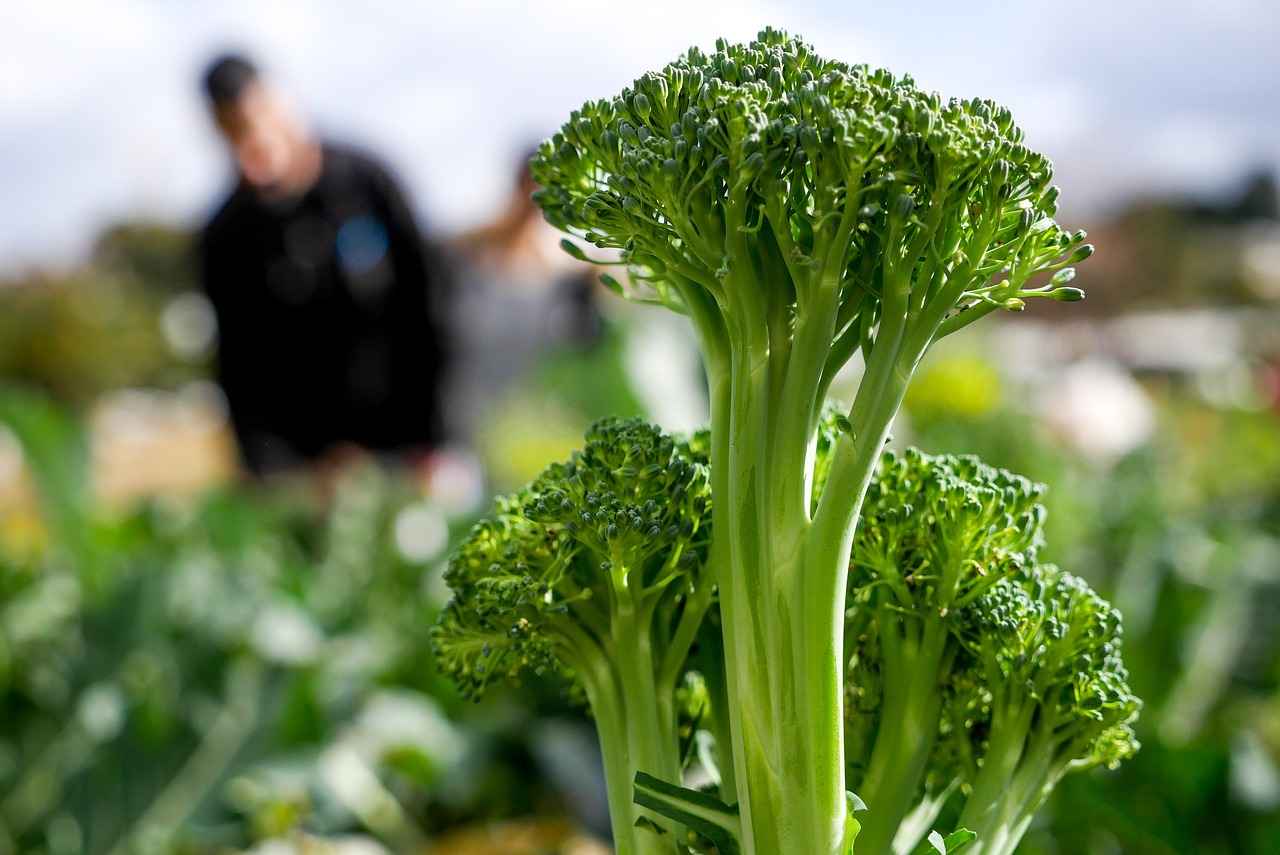This article delves into the growing trend of organic farming among Bengalis, examining its numerous benefits, the challenges faced by farmers, and the socio-economic factors that are driving this significant transformation in agricultural practices.
The Rise of Organic Farming in Bengal
In recent years, organic farming has gained substantial traction in Bengal. This shift is largely attributed to a heightened health consciousness and increasing concerns about environmental sustainability. Farmers are gradually moving away from traditional farming methods in favor of more sustainable practices that prioritize both human health and the ecosystem.
Health Benefits of Organic Produce
Consumers are becoming increasingly aware of the health advantages associated with organic produce. Foods grown without harmful pesticides and chemicals are often seen as a healthier choice, making them a preferred option for many families looking to improve their diets.
Understanding Organic Certification
- Organic certification is crucial as it ensures that produce meets specific standards.
- This certification provides consumers with confidence in the quality and safety of the food they purchase.
Challenges Faced by Organic Farmers
Despite the benefits, organic farmers encounter several challenges. The higher production costs and the necessity for specialized knowledge can be significant barriers to entry.
Environmental Impact of Organic Farming
Organic farming practices contribute positively to the environment. They promote biodiversity, improve soil health, and reduce pollution from synthetic fertilizers and pesticides.
Economic Factors Driving Organic Farming
Economic incentives, such as government subsidies and a growing demand for organic products, are encouraging more farmers in Bengal to adopt organic practices. This shift is not only beneficial for the environment but also provides farmers with lucrative opportunities for financial returns.
Community and Social Impact
The transition to organic farming fosters community involvement and social cohesion among farmers and consumers. It encourages the formation of local networks where knowledge and resources can be shared, strengthening community ties.
Future of Organic Farming in Bengal
The future of organic farming in Bengal appears promising. Ongoing research and community engagement are paving the way for sustainable agricultural practices, ensuring a healthier future for both farmers and consumers.
Conclusion
The growing trend of organic farming among Bengalis reflects a significant shift towards sustainable agriculture. Driven by health, economic, and environmental considerations, this movement promises a brighter future for the agricultural landscape in Bengal.

The Rise of Organic Farming in Bengal
In recent years, organic farming has become increasingly popular in Bengal, driven by a growing awareness of health issues and environmental sustainability. This shift represents a significant transformation in agricultural practices, moving away from traditional methods to embrace more sustainable approaches.
As consumers become more health-conscious, they are actively seeking organic produce that is free from harmful pesticides and synthetic chemicals. This demand is not only about personal health; it reflects a broader concern for the environment and the impact of conventional farming on biodiversity and soil health.
Health Benefits of Organic Produce
- Organic fruits and vegetables are often richer in nutrients.
- They are free from harmful residues, making them a safer choice for families.
- Organic farming practices promote better soil health, which in turn supports healthier crops.
Understanding Organic Certification
Organic certification plays a crucial role in ensuring that produce meets specific standards. This certification process involves rigorous inspections and adherence to strict guidelines, which can be both challenging and costly for farmers. However, obtaining this certification can significantly enhance the marketability of their products.
Challenges Faced by Organic Farmers
Despite the benefits, organic farmers face numerous challenges, including:
- Higher production costs associated with organic inputs.
- The need for specialized knowledge and skills in organic farming techniques.
- Market competition from conventionally grown produce.
Environmental Impact of Organic Farming
Organic farming contributes positively to the environment by:
- Promoting biodiversity through the avoidance of chemical inputs.
- Improving soil health and fertility through natural practices such as crop rotation and composting.
- Reducing pollution and conserving water resources.
Economic Factors Driving Organic Farming
Economic incentives, such as government subsidies and increasing consumer demand for organic products, are encouraging more farmers in Bengal to adopt organic practices. This shift not only benefits the farmers economically but also contributes to sustainable agricultural practices in the region.
Conclusion
The rise of organic farming in Bengal reflects a significant shift towards sustainable agriculture, driven by health, economic, and environmental considerations. As this trend continues to grow, it promises a healthier future for both farmers and consumers alike.

Health Benefits of Organic Produce
As consumers become more health-conscious, the demand for organic produce continues to rise. Families are increasingly opting for organic fruits and vegetables, recognizing the numerous health benefits associated with these natural options. Unlike conventionally grown produce, organic products are cultivated without the use of harmful pesticides and synthetic chemicals, making them a safer choice for consumers.
- Reduced Chemical Exposure: Organic farming practices minimize the use of artificial chemicals, which can lead to lower levels of pesticide residues on food. This reduction in chemical exposure is particularly beneficial for children and pregnant women, who are more vulnerable to the effects of toxins.
- Higher Nutritional Value: Some studies suggest that organic produce may contain higher levels of certain nutrients, including antioxidants, which are essential for maintaining good health and preventing chronic diseases. This enhanced nutritional profile can contribute to better overall well-being.
- Better Taste: Many consumers report that organic fruits and vegetables taste better than their conventionally grown counterparts. This is often attributed to the natural growing processes and the absence of artificial ripening agents.
- Environmental Sustainability: Choosing organic produce not only benefits personal health but also supports sustainable farming practices that protect the environment. Organic farms promote biodiversity and soil health, contributing to a healthier ecosystem.
Furthermore, the shift towards organic produce is often associated with an increased awareness of food origins and quality. As families become more educated about the impacts of food production on health and the environment, they are more likely to prioritize organic options in their diets.
In conclusion, the growing preference for organic produce among consumers is a reflection of a broader trend towards healthier living. By choosing organic, families are not only investing in their health but also supporting sustainable agricultural practices that benefit the planet.
Understanding Organic Certification
is crucial for both consumers and producers in the growing organic market. As the demand for organic products rises, so does the need for a clear understanding of what organic certification entails. This certification guarantees that the food you consume has been produced according to specific standards that prioritize health and sustainability.
Organic certification is a rigorous process that ensures that agricultural products are grown, handled, and processed without the use of synthetic fertilizers, pesticides, or genetically modified organisms (GMOs). The certification process involves a series of steps:
| Step | Description |
|---|---|
| Application | Farmers must submit an application to a certifying agency, detailing their farming practices and methods. |
| Inspection | An inspector visits the farm to assess compliance with organic standards, checking for the use of prohibited substances. |
| Compliance | Farmers must demonstrate adherence to organic practices for a minimum of three years before certification is granted. |
| Certification | If compliant, the farm receives organic certification, allowing them to market their products as organic. |
This certification not only enhances consumer trust but also opens up new markets for farmers. Consumers are becoming increasingly aware of the health benefits associated with organic produce, which is often perceived as safer and more nutritious. The absence of harmful chemicals and pesticides makes organic products a preferred choice for families aiming for healthier lifestyles.
Moreover, organic certification can significantly impact a farmer’s economic viability. With the growing consumer preference for organic products, certified farmers often enjoy higher prices for their goods, making it a lucrative venture. However, obtaining this certification can be both time-consuming and costly, presenting challenges for many farmers.
In conclusion, is essential for consumers who wish to make informed choices and for farmers striving to meet market demands. As the organic movement continues to grow, the importance of certification will only increase, ensuring that consumers can trust the quality and safety of the food they purchase.
Process of Certification
The certification process for organic farming is a critical aspect that ensures the integrity and quality of organic produce. This process is governed by stringent guidelines and rigorous inspections, which are designed to verify that farmers adhere to established organic practices. While these measures are essential for maintaining consumer trust, they can also be both time-consuming and costly for farmers.
Initially, farmers must familiarize themselves with the regulatory standards set by certifying bodies. This includes understanding the specific practices that qualify as organic, such as the prohibition of synthetic pesticides and fertilizers, and the requirement for crop rotation and biodiversity. Once farmers are aware of these guidelines, they must implement them consistently over a designated period, often three years, before they can apply for certification.
The application process itself involves submitting detailed documentation that outlines farming practices, inputs used, and the history of the land. Additionally, farmers must maintain comprehensive records of all activities related to their crops. This level of documentation is essential for the subsequent inspection phase, where a certified inspector evaluates the farm to ensure compliance with organic standards.
During the inspection, the inspector will assess various aspects of the farm, including soil health, pest management strategies, and overall farm management practices. This thorough examination not only verifies adherence to organic practices but also provides an opportunity for farmers to gain valuable insights into improving their operations.
After passing the inspection, farmers receive their organic certification, which can significantly enhance their marketability. Consumers are increasingly willing to pay a premium for certified organic products, making the investment in the certification process worthwhile. However, it is crucial for farmers to remain vigilant, as maintaining certification requires ongoing compliance and periodic inspections.
In conclusion, while the certification process for organic farming can be challenging, its benefits in terms of market access and consumer trust make it a vital step for farmers looking to transition to organic practices.
Importance of Certification for Farmers
In today’s competitive agricultural landscape, obtaining organic certification has become a critical strategy for farmers seeking to enhance their market presence. This certification not only signifies adherence to stringent organic practices but also serves as a powerful marketing tool. As consumers grow increasingly health-conscious and environmentally aware, they are more inclined to choose products that are certified organic.
One of the key benefits of organic certification is the potential for increased profitability. Research indicates that consumers are often willing to pay a premium for products that are labeled as organic. This willingness to spend more translates directly into higher profit margins for farmers who can successfully navigate the certification process. In fact, studies show that certified organic farmers can earn up to 30% more than their conventional counterparts, making it a financially viable option.
Moreover, organic certification enhances marketability. With the growing demand for organic products, farmers who are certified can tap into niche markets that prioritize sustainability and health. This not only opens up new revenue streams but also fosters customer loyalty, as consumers often feel a stronger connection to brands that align with their values.
However, the journey to obtaining organic certification is not without its challenges. Farmers must adhere to a series of stringent guidelines and undergo regular inspections, which can be both time-consuming and costly. Despite these hurdles, the long-term benefits of certification often outweigh the initial investments.
In conclusion, the importance of organic certification for farmers cannot be overstated. By enhancing marketability and potentially increasing profits, it serves as a crucial component of a successful agricultural strategy in an increasingly eco-conscious market.
Challenges Faced by Organic Farmers
Organic farming has emerged as a preferred choice for many farmers, particularly in regions like Bengal, due to its numerous benefits. However, it is not without its challenges. Farmers venturing into organic practices often face a unique set of obstacles that can impact their operations and profitability.
- Higher Production Costs: One of the most significant challenges is the increased cost of production. Organic farming typically requires more labor-intensive practices, such as manual weeding and the use of organic fertilizers. This can lead to higher operational expenses compared to conventional farming methods.
- Specialized Knowledge and Skills: Transitioning to organic farming necessitates a deep understanding of sustainable practices. Farmers must be well-versed in crop rotation, soil health management, and pest control without synthetic chemicals. This often requires additional training and education.
- Market Access and Competition: While the demand for organic products is rising, farmers may struggle to access markets that are willing to pay a premium for organic goods. Competing with established organic producers can be daunting, particularly for new entrants.
- Certification Process: Obtaining organic certification can be a lengthy and costly process. Farmers must adhere to strict guidelines and undergo regular inspections, which can be a barrier for many.
- Environmental Factors: Organic farmers are also at the mercy of environmental conditions. Organic practices may be less resilient to pests and diseases, requiring farmers to be proactive and innovative in their approaches to maintain crop health.
Despite these challenges, many farmers remain committed to organic practices due to the long-term benefits for both their health and the environment. As more resources and support systems develop, the transition to organic farming may become smoother for those willing to embrace it.

Environmental Impact of Organic Farming
Organic farming is more than just a method of producing food; it represents a holistic approach to agriculture that prioritizes the health of the environment. The practices involved in organic farming contribute significantly to ecological sustainability.
Promoting Biodiversity
One of the foremost benefits of organic farming is its ability to promote biodiversity. By avoiding synthetic chemicals, organic farms create a habitat that supports a variety of species, including beneficial insects, birds, and soil organisms. This diversity is crucial for maintaining ecosystem balance and resilience.
Improving Soil Health
Organic farming practices, such as crop rotation, cover cropping, and the use of organic fertilizers, enhance soil health. These methods improve soil structure and fertility, leading to better water retention and nutrient availability. Healthy soil is the foundation of sustainable agriculture, as it supports robust plant growth and reduces the need for chemical inputs.
Reducing Pollution
By eliminating the use of synthetic fertilizers and pesticides, organic farming significantly reduces pollution in the environment. This decrease in chemical runoff protects water sources from contamination, promoting cleaner ecosystems. Furthermore, organic farms often utilize natural pest control methods, which further minimizes environmental impact.
Carbon Sequestration
Organic farming has the potential to combat climate change through carbon sequestration. Practices such as agroforestry and the use of cover crops can capture carbon dioxide from the atmosphere and store it in the soil, helping to mitigate greenhouse gas emissions.
Conclusion
The environmental impact of organic farming is profound and multifaceted. By promoting biodiversity, improving soil health, and reducing pollution, organic practices offer a sustainable alternative to conventional agriculture. As more farmers adopt these methods, the positive effects on the environment will continue to grow, paving the way for a healthier planet.
Soil Health and Fertility
are crucial components of sustainable agriculture, particularly in organic farming practices. The focus on enhancing soil fertility is not just about increasing crop yields; it is about fostering a healthy ecosystem that supports diverse life forms, ensuring long-term agricultural viability.
Organic methods significantly enhance soil fertility through practices such as crop rotation and composting. These techniques are essential in maintaining nutrient levels in the soil. Crop rotation involves alternating the types of crops grown in a specific area to prevent nutrient depletion and reduce pest infestations. This practice not only helps in replenishing the soil but also promotes a balanced ecosystem by supporting various plant species.
Composting, on the other hand, involves the decomposition of organic matter, such as plant residues and animal manure, to create nutrient-rich fertilizer. This process enriches the soil with essential nutrients, improves its structure, and enhances moisture retention. By incorporating compost into the soil, farmers can reduce their reliance on synthetic fertilizers, which can harm the environment.
Moreover, these organic methods contribute to biodiversity within the farming ecosystem. By avoiding chemical inputs, organic farming practices encourage the growth of various microorganisms, insects, and plants, which play vital roles in soil health. A diverse ecosystem is more resilient to diseases and pests, ultimately leading to healthier crops and a more sustainable farming model.
In conclusion, maintaining soil health and fertility through organic practices is not merely an agricultural technique; it is a commitment to nurturing the environment and ensuring food security for future generations. By embracing methods like crop rotation and composting, farmers can promote a thriving ecosystem that benefits both the land and the community.
Biodiversity and Ecosystem Balance
is a crucial aspect of organic farming that significantly impacts both agricultural practices and the environment. By prioritizing natural methods over chemical inputs, organic farming fosters a rich tapestry of plant and animal life, creating a balanced ecosystem.
Organic farming practices are designed to enhance biodiversity, which refers to the variety of living organisms in a particular habitat. This diversity is essential for maintaining ecosystem health and resilience. For example, diverse crop rotations can help prevent pests and diseases, reducing the need for synthetic pesticides. In addition, a variety of plants can attract beneficial insects, such as pollinators, which are vital for crop production.
Moreover, organic farming supports a range of animal species, from soil-dwelling organisms to larger mammals. The absence of harmful chemicals allows these species to thrive, contributing to a more balanced ecosystem. Healthy ecosystems, in turn, provide crucial services, such as soil fertility, water purification, and climate regulation.
| Benefits of Biodiversity in Organic Farming | Description |
|---|---|
| Pest Control | Diverse crops can naturally deter pests, reducing the need for chemical pesticides. |
| Soil Health | Varied plant roots improve soil structure and nutrient availability, enhancing fertility. |
| Pollination | Attracting a range of pollinators increases crop yields and quality. |
| Climate Resilience | Diverse ecosystems are better equipped to withstand climate changes and extreme weather. |
In conclusion, organic farming’s commitment to biodiversity not only benefits the environment but also enhances agricultural productivity. By fostering diverse plant and animal life, organic practices contribute to a sustainable future, ensuring that ecosystems remain balanced and resilient. As more farmers adopt these methods, the positive impact on biodiversity and ecosystem health will continue to grow.

Economic Factors Driving Organic Farming
The transition towards organic farming in Bengal is significantly influenced by various economic factors. As the global market for organic products expands, local farmers are increasingly recognizing the potential benefits of adopting organic practices. This shift is not merely a trend; it is a response to changing consumer preferences and economic incentives that are reshaping the agricultural landscape.
- Government Subsidies: One of the primary drivers encouraging farmers to embrace organic methods is the availability of government subsidies. These financial incentives help offset the initial costs associated with transitioning from conventional to organic farming, making it a more viable option for many.
- Growing Demand for Organic Products: The rising consumer awareness regarding health and environmental sustainability has led to an increased demand for organic produce. Farmers are keen to tap into this lucrative market, which often offers better prices compared to conventional crops.
- Access to Markets: With the establishment of farmers’ markets and online platforms, organic farmers can now reach a broader audience. This increased access to markets encourages more farmers to consider organic farming as a profitable venture.
The economic landscape for organic farming is further supported by various government initiatives aimed at promoting sustainable agriculture. These initiatives often include:
1. Educational programs to inform farmers about organic practices.2. Financial assistance for purchasing organic seeds and fertilizers.3. Research funding to develop better organic farming techniques.
Moreover, as more farmers transition to organic practices, they contribute to the overall economic development of their communities. This shift not only enhances their income but also promotes local food systems that are both sustainable and resilient.
In conclusion, the economic factors driving organic farming in Bengal are multifaceted, encompassing government support, market demand, and community engagement. As these elements continue to evolve, they promise to pave the way for a more sustainable agricultural future in the region.
Market Demand for Organic Products
The surge in consumer awareness regarding health and environmental issues has significantly influenced the . As more individuals prioritize their well-being and the planet’s health, the shift towards organic farming presents a unique opportunity for farmers seeking better financial returns.
With rising concerns about the adverse effects of synthetic pesticides and fertilizers, consumers are increasingly opting for organic produce. This shift is not merely a trend but is becoming a lifestyle choice for many families. The health benefits associated with organic foods, such as lower levels of harmful chemicals and higher nutrient content, make them a preferred choice among health-conscious buyers.
Moreover, the economic incentives associated with organic farming cannot be overlooked. Farmers transitioning to organic practices often find themselves in a lucrative market where consumers are willing to pay a premium for quality. This financial motivation is further bolstered by government subsidies and support programs aimed at promoting sustainable agricultural practices.
In addition to economic benefits, organic farming fosters a sense of community. Local farmers’ markets and organic cooperatives create platforms for farmers to connect with consumers, enhancing trust and transparency in the food supply chain. This direct relationship not only benefits farmers financially but also enriches the community by promoting local economies and sustainable practices.
Despite the challenges associated with organic farming, such as higher initial costs and the need for specialized knowledge, the long-term benefits outweigh these obstacles. The increasing demand for organic products ensures that farmers who adapt to these practices can secure their livelihoods while contributing positively to the environment.
In conclusion, the growing market demand for organic products presents a significant opportunity for farmers. By embracing organic farming, they can not only achieve better financial returns but also play a crucial role in fostering a healthier and more sustainable future.
Government Support and Initiatives
In recent years, various government programs have emerged to bolster the organic farming sector, providing aspiring farmers with essential resources, education, and financial assistance. These initiatives are crucial for promoting sustainable agricultural practices and ensuring that farmers can transition from conventional methods to organic farming.
| Type of Support | Description |
|---|---|
| Financial Assistance | Subsidies and grants are offered to help cover the initial costs of transitioning to organic farming, which can be a significant barrier for many. |
| Education and Training | Workshops and training programs are provided to educate farmers on organic practices, pest management, and soil health. |
| Research and Development | Government-funded research initiatives focus on developing better organic farming techniques and pest-resistant crops. |
| Certification Assistance | Support is offered to help farmers navigate the organic certification process, ensuring compliance with necessary standards. |
These initiatives are not only designed to assist individual farmers but also aim to create a more robust organic farming community. By fostering collaboration and knowledge sharing, the government encourages farmers to work together, enhancing their collective impact on the environment and local economies.
Furthermore, the increasing consumer demand for organic products has prompted the government to actively promote these initiatives. As awareness of the health and environmental benefits of organic farming grows, so does the need for supportive measures that can help farmers meet this demand.
In conclusion, government support and initiatives play a vital role in the success of organic farming. By providing financial resources, educational opportunities, and facilitating the certification process, these programs empower farmers to adopt sustainable practices that benefit both their livelihoods and the environment.

Community and Social Impact
The transition to organic farming in Bengal is not merely a shift in agricultural practices; it is a profound movement that enhances community involvement and fosters social cohesion among farmers and consumers. This grassroots change is reshaping the social fabric of rural areas, creating a more interconnected community.
As farmers embrace organic methods, they often form local cooperatives that facilitate knowledge sharing and resource pooling. These cooperatives serve as platforms for farmers to exchange best practices, discuss challenges, and collaborate on marketing their products. Such networks not only strengthen the bonds among farmers but also create a sense of belonging and mutual support, which is crucial in rural communities.
Moreover, organic farming initiatives often prioritize community engagement. Events such as farmers’ markets, workshops, and farm tours allow consumers to connect directly with the producers of their food. This interaction fosters trust and transparency, as consumers can see firsthand the care and effort that goes into organic farming. As a result, a strong relationship develops between farmers and consumers, encouraging a community-oriented approach to food production.
Furthermore, the empowerment of women in agriculture through organic farming is significant. Many women are taking on leadership roles within these farming cooperatives, gaining economic independence and challenging traditional gender roles. This shift not only benefits individual women but also uplifts entire families and communities, as women often reinvest their earnings into education and health for their children.
In summary, the shift to organic farming in Bengal is fostering a vibrant community culture. By building local networks, encouraging consumer-farmer relationships, and empowering women, organic farming is not just changing agricultural practices; it is reshaping communities for the better.
Building Local Networks
within the realm of organic farming has emerged as a vital component in enhancing the agricultural landscape in Bengal. As farmers transition to organic practices, they not only adopt sustainable methods but also foster a sense of community that is essential for collective growth and resilience.
These local networks serve as platforms for farmers to exchange knowledge and share resources. This collaboration is crucial, especially for those new to organic farming, as it enables them to learn from experienced peers. Workshops, community meetings, and informal gatherings create opportunities for skill-sharing and problem-solving, which can significantly improve farming practices.
Moreover, these networks help in strengthening community ties. Farmers often face similar challenges, such as pest management or market access, and by working together, they can devise effective strategies and solutions. This collaboration not only enhances productivity but also builds a support system that encourages farmers to persevere through difficulties.
Additionally, local networks can facilitate access to resources such as organic seeds, compost, and tools, which may be difficult for individual farmers to obtain. By pooling resources, farmers can reduce costs and increase their collective bargaining power when purchasing supplies. This economic synergy is critical in making organic farming more viable and sustainable.
Another significant aspect of these networks is their role in advocacy. By coming together, farmers can voice their needs and concerns to local governments and organizations, leading to better support and resources for organic farming initiatives. This collective voice is essential in promoting policies that favor sustainable agricultural practices.
In conclusion, the formation of local networks in organic farming not only enhances agricultural practices but also strengthens community bonds. As farmers collaborate, they create a resilient ecosystem that supports sustainable growth, ensuring that organic farming thrives in Bengal.
Empowering Women in Agriculture
In recent years, the role of women in agriculture has gained significant attention, particularly in the context of organic farming initiatives. These programs not only provide women with the chance to engage in sustainable agricultural practices but also serve as a catalyst for social change in rural communities.
Leadership Opportunities
Organic farming initiatives often empower women by creating leadership opportunities. As women take on roles in managing farms, leading community projects, and participating in decision-making processes, they challenge traditional gender roles. This shift fosters a sense of confidence and self-worth, enabling women to become influential figures within their communities.
Economic Independence
Moreover, organic farming provides women with the means to achieve economic independence. By cultivating organic crops, women can generate income not only for their families but also for community projects. This financial empowerment allows them to invest in education, healthcare, and other essential services, further enhancing their families’ quality of life.
Transforming Gender Dynamics
The transformation of gender dynamics in rural areas is profound. As women become more involved in agriculture, they gain respect and recognition from their peers and families. This shift contributes to a more equitable distribution of resources and responsibilities within households, promoting gender equality and challenging long-standing stereotypes.
Community Impact
Beyond individual empowerment, these initiatives foster a sense of community and collaboration. Women often form networks to share experiences, resources, and knowledge, creating a supportive environment that benefits all members of the community. This collaboration enhances community resilience and encourages sustainable practices that can lead to long-term success.
Conclusion
In conclusion, organic farming initiatives play a significant role in empowering women in agriculture. By providing opportunities for leadership and economic independence, these programs not only transform gender dynamics but also strengthen rural communities as a whole. As we continue to support and promote these initiatives, we pave the way for a more equitable and sustainable future.

Future of Organic Farming in Bengal
The future of organic farming in Bengal is becoming increasingly bright, driven by a combination of innovative practices, community involvement, and a growing awareness of sustainable agriculture. As the world shifts towards more eco-friendly methods of food production, Bengal is at the forefront of this transformation.
Research institutions and universities are actively exploring new agricultural techniques that enhance crop yields while minimizing environmental impact. This includes the use of natural fertilizers and pest control methods that align with organic principles. Additionally, community engagement plays a crucial role in this evolution, as local farmers collaborate to share knowledge and resources.
In recent years, there has been a surge in consumer demand for organic products, driven by a heightened awareness of health and environmental issues. This trend is encouraging more farmers in Bengal to transition from conventional farming to organic practices. As they do so, they are not only improving their own livelihoods but also contributing to the overall health of the ecosystem.
Furthermore, government initiatives and support programs are paving the way for this shift. By providing financial assistance and educational resources, authorities are helping farmers overcome the initial challenges associated with organic farming, such as certification processes and the need for specialized knowledge.
Looking ahead, the integration of modern technology and innovative farming techniques will further enhance the efficiency of organic farms. This includes the use of precision farming tools and data analytics to optimize crop management. As these technologies become more accessible, they will likely attract a younger generation of farmers eager to adopt sustainable practices.
In conclusion, the future of organic farming in Bengal is indeed promising. With ongoing research, community collaboration, and a supportive policy environment, Bengal is poised to lead the way in sustainable agriculture, benefiting both farmers and consumers alike.
Innovative Practices and Technology
play a crucial role in transforming organic farming, particularly in Bengal. The integration of modern technology and innovative methodologies not only enhances productivity but also makes organic farms more competitive in the market.
As the demand for organic produce continues to rise, farmers are increasingly adopting advanced technologies to streamline their operations. These innovations range from precision agriculture tools to data analytics, enabling farmers to make informed decisions that optimize their yields.
- Precision Agriculture: This technology utilizes GPS and IoT devices to monitor crop health, soil conditions, and weather patterns. By collecting real-time data, farmers can apply resources more efficiently, reducing waste and increasing crop output.
- Automated Irrigation Systems: Smart irrigation systems help manage water usage effectively. By using sensors to detect soil moisture levels, these systems ensure that crops receive the right amount of water, which is essential for organic farming.
- Biotechnology: Innovations in biotechnology, such as the development of organic pest control methods, allow farmers to protect their crops without harmful chemicals. This not only boosts productivity but also aligns with the principles of organic farming.
- Mobile Applications: Various apps provide farmers with access to market information, weather forecasts, and best practices for organic farming. This knowledge empowers farmers to improve their methods and connect with buyers directly.
Moreover, the use of drone technology for monitoring crop health and assessing land conditions is becoming increasingly popular. Drones can cover large areas quickly, providing valuable insights that help farmers make timely interventions.
In conclusion, by embracing , organic farmers in Bengal can significantly enhance their operational efficiency and productivity. This not only positions them favorably in the competitive market but also contributes to the overall sustainability of agricultural practices in the region.
Education and Awareness Programs
play a crucial role in promoting organic farming practices among farmers in Bengal. As the agricultural landscape evolves, it becomes essential to equip farmers with the knowledge and tools needed to transition to more sustainable methods. The benefits of organic farming extend beyond personal health; they encompass environmental sustainability and economic viability, making education a pivotal element in this transformation.
One of the primary goals of these programs is to highlight the health benefits associated with organic produce. Farmers are educated about the dangers of synthetic pesticides and fertilizers, which can harm both the environment and human health. By understanding these risks, farmers are more likely to appreciate the value of organic practices that prioritize natural inputs and biodiversity.
- Workshops and Training Sessions: Local agricultural departments and NGOs often organize workshops that provide hands-on training in organic farming techniques, including crop rotation, composting, and pest management.
- Field Demonstrations: Practical demonstrations in the field allow farmers to see the benefits of organic farming firsthand, helping to dispel myths and encourage adoption.
- Online Resources: With the rise of digital technology, many educational programs now offer online courses and webinars, making information accessible to a broader audience.
Moreover, these programs often include success stories from local farmers who have successfully transitioned to organic farming. By sharing these narratives, new farmers can visualize the potential benefits and profitability of organic practices. Additionally, community events and fairs provide platforms for farmers to network, share experiences, and learn from one another.
The impact of education and awareness programs extends beyond individual farmers; it fosters a community-wide shift towards sustainable agriculture. As more farmers adopt organic practices, the demand for organic produce increases, leading to better market opportunities and healthier food systems for all. The journey towards organic farming in Bengal is undoubtedly challenging, but with the right education and support, it promises a sustainable and prosperous future for farmers and consumers alike.

Conclusion
The increasing trend of organic farming among the Bengali population signifies a crucial transformation in agricultural practices, driven by a variety of factors including health awareness, economic benefits, and environmental sustainability. As consumers become more conscious of what they eat, the demand for organic produce has surged, prompting farmers to adopt methods that prioritize sustainability and health.
One of the most compelling reasons for this shift is the health benefits associated with organic farming. Organic produce is typically free from harmful pesticides and chemicals, making it a safer choice for families. This growing health consciousness is not just a trend; it reflects a deeper understanding of the impact of food choices on overall well-being.
Moreover, the economic landscape is changing. With increasing consumer demand for organic products, farmers are finding lucrative opportunities that allow them to thrive financially. Government support through subsidies and initiatives further encourages this shift, providing essential resources and education to help farmers transition to organic practices.
Despite the challenges faced by organic farmers, such as higher production costs and the need for specialized knowledge, the benefits far outweigh the drawbacks. The environmental impact of organic farming is also noteworthy. By enhancing soil health and promoting biodiversity, organic farming practices contribute positively to the ecosystem, ensuring that future generations can enjoy a healthy planet.
In conclusion, the movement towards organic farming among Bengalis is not merely an agricultural trend; it represents a broader commitment to sustainable living and community well-being. As more farmers adopt these practices, the future looks promising, with ongoing innovation and education paving the way for a healthier, more sustainable agricultural landscape.
Frequently Asked Questions
- What is organic farming?
Organic farming is an agricultural method that emphasizes the use of natural processes and materials, avoiding synthetic fertilizers and pesticides. It focuses on sustainability, biodiversity, and soil health.
- Why are Bengalis shifting to organic farming?
Bengalis are increasingly turning to organic farming due to rising health consciousness, environmental concerns, and the economic benefits associated with growing demand for organic products.
- How does organic certification work?
Organic certification involves a rigorous process where farms must adhere to specific standards set by certifying bodies. This includes inspections and documentation to ensure compliance with organic practices.
- What are the challenges of organic farming?
Farmers face several challenges, including higher production costs, the need for specialized knowledge, and potential market competition. These factors can make the transition to organic practices daunting.
- What impact does organic farming have on the environment?
Organic farming positively impacts the environment by enhancing biodiversity, improving soil health, and reducing pollution from harmful chemicals, contributing to a more sustainable ecosystem.
- Are there economic incentives for organic farmers?
Yes! Government subsidies and growing consumer demand for organic products provide economic incentives for farmers to adopt organic practices, often leading to better financial returns.
- How does organic farming benefit communities?
Organic farming fosters community involvement, encourages knowledge sharing among farmers, and empowers women, creating stronger social ties and collaborative efforts within rural areas.
- What does the future hold for organic farming in Bengal?
The future looks bright, with ongoing innovations, education, and community engagement paving the way for sustainable practices, promising a healthier agricultural landscape for Bengal.


























































